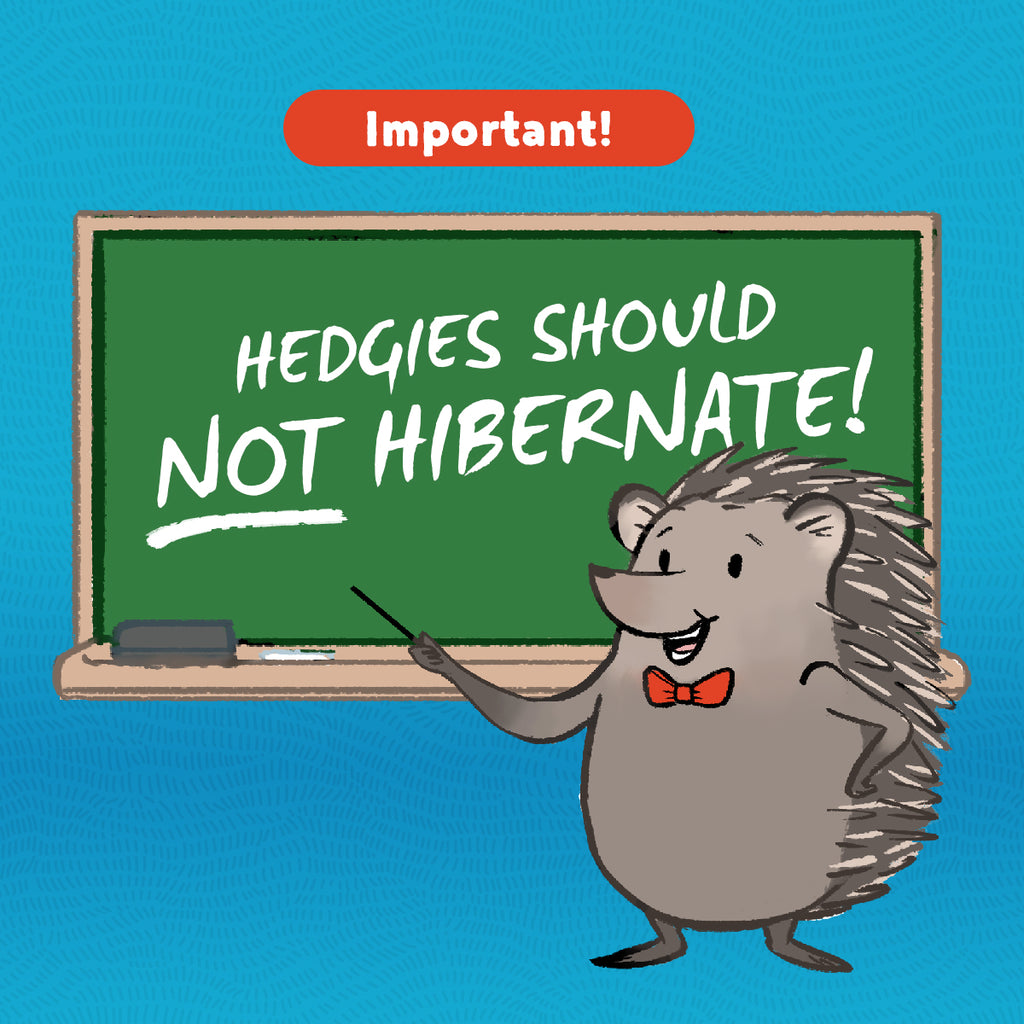PSA: Hedgies shouldn’t hibernate!

Hedgie hibernation is nothing to be relaxed about. While the trait to conserve energy during colder months is natural for many animals, our pet hedgehogs descend from wild desert roaming hedgies, and they’re not designed to hibernate. Your domestic hedgie needs to steer clear of attempting winter sleep! It’s a life and death issue!
What are the dangers of your pet hedgie attempting hibernation? Hedgehogs who attempt hibernation may not drink or eat an adequate amount during this period. Additionally, due to their size and the fact they lack enough fat to sustain them, the process could damage their immune system or even prove fatal. While it’s possible to recover from a hibernation attempt, if it goes on too long, you may not be able to save your quilled friend, even with a visit to the vet.
Here's how to prevent a hibernation attempt:
- Ensure the ambient temperature (air around their cage) is between 73-79 degrees. This will keep your hedgie from attempting a hibernation they can’t survive.
- If your home isn’t warm enough, you’ll need to get either a space heater or a heat lamp. Non-light emitting ceramic bulbs are needed for their heat lamp. While lack of heat is the primary trigger of hibernation, having constant light from a light-emitting heat lamp will throw off their circadian rhythm which is bad for their health. Try not to leave a light on all night or have them spend too long in the dark. As nocturnal animals, our pet hedgehogs need to have darkness at night and light during the day.
- Space heaters may be a good addition if you home is on the colder side. If you do opt for a space heater for your hedgie, ensure it is not too close to their cage and has an automatic self-shut off feature to prevent fires or overheating.
- Do not use a heating pad to warm your hedgie! Heating pads only heat the floor of their cages and cause their feet to get too hot. Hedgies like warm bodies, not hot feet!
If you’re concerned your hedgie may be currently experiencing symptoms of hibernation, look to see if they are exhibiting drowsy behavior like reluctantly uncurling from a ball (despite nudging) or generally lethargic movements. Pre-hibernation hedgies will also be cooler to the touch and will start eating and drinking less.
While you should always pay attention to your hedgie’s food and water intake, it is particularly important during the winter season! Monitor it daily!
If your hedgie is experiencing symptoms of “the big bedtime,” don’t despair, but you do need to act quickly! You can ease them out of their cold-induced trance by following these simple, but critical hedgie “pick-me-up” steps:
Gradually get them to an appropriate temperature by placing them directly on your body, putting warm towels from the dryer near them or moving their cage into a less drafty (warmer) location, turn up the heat or hold them close near a space heater. Hedgies don’t like rude awakenings, so it’s important to warm them up unhurriedly and with care. It’s also important to monitor their behavior over the next few hours/days to ensure they are fully roused and feeling perked (coffee is 100% not recommended for hedgies, but feel free to treat yourself). Once they are back to normal, they should begin eating and drinking normally again! (Maybe it was just a case of the Mondays?)
If your hedgie doesn’t seem to quickly recover, get them to the vet, STAT!

